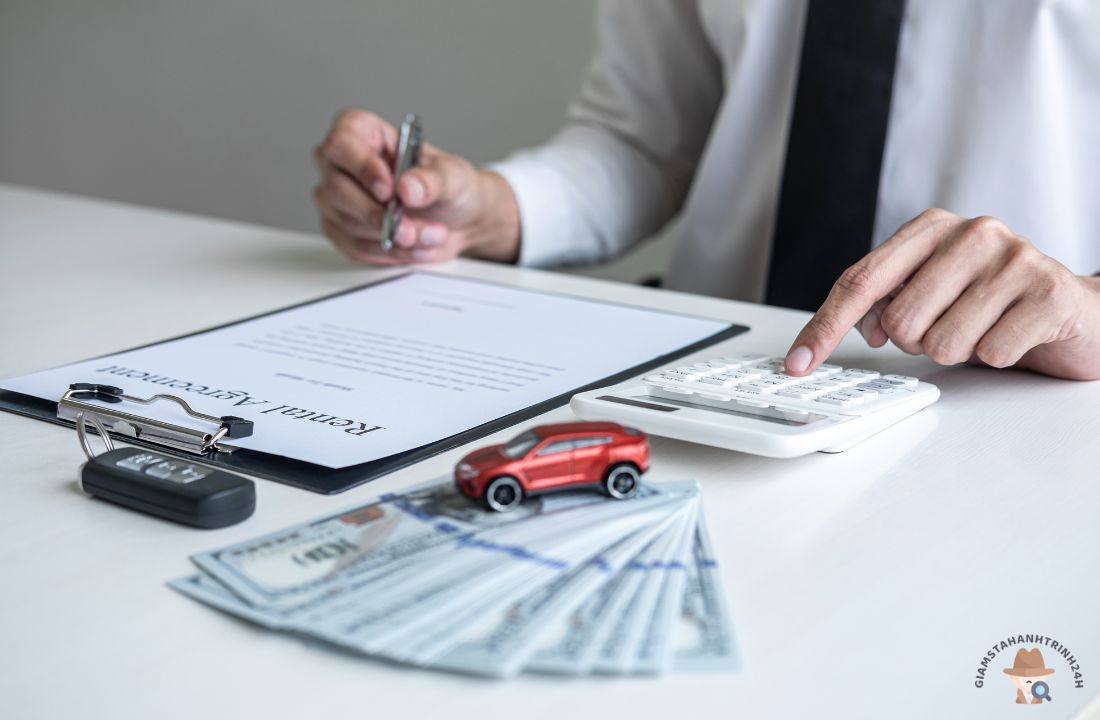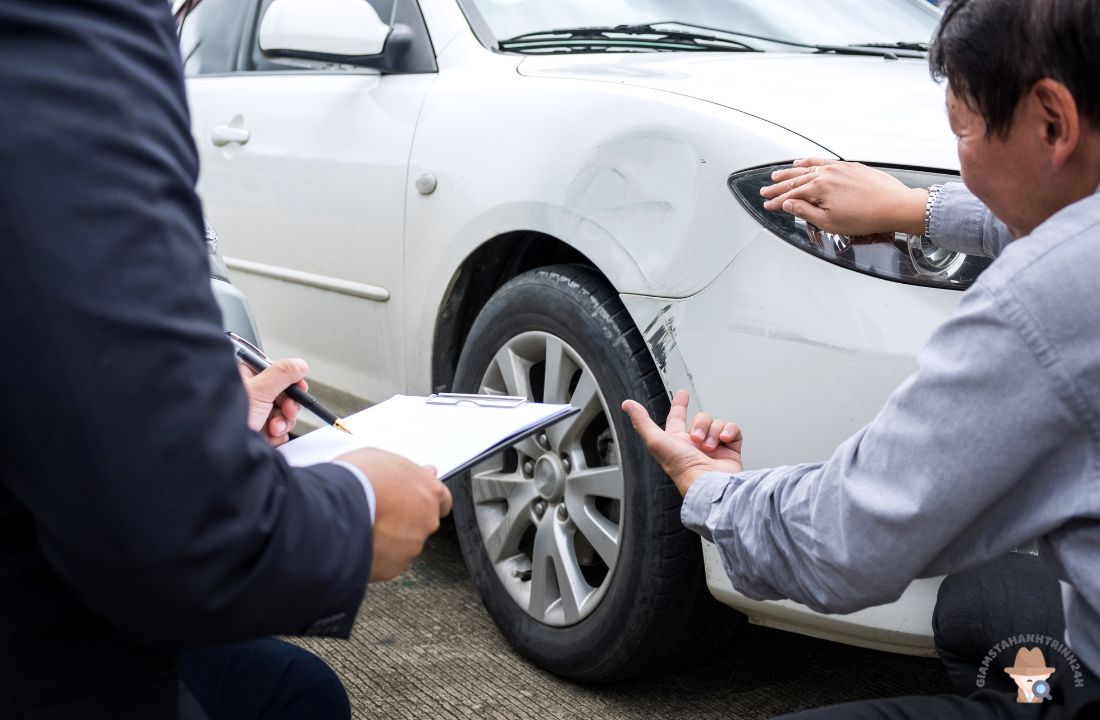Car insurance is a necessary expense for all vehicle owners. It not only provides financial protection in case of accidents but also ensures compliance with legal requirements in most countries. However, understanding car insurance can be overwhelming with the various types and levels of coverage available. This comprehensive guide aims to provide an in-depth understanding of car insurance, covering its types, levels of coverage, claims procedures, and tips for getting the best coverage at an affordable price. Let’s find out with giamsathanhtrinh24h.vn.
Types Of Car Insurance
There are several types of car insurance policies available, each offering different levels of coverage. It is essential to understand these types to determine the right coverage for your needs. The primary types of car insurance include:

1. Liability Insurance
Liability insurance is the most basic type of car insurance and is mandatory in most jurisdictions. It covers damages and injuries caused to other vehicles and individuals in an accident caused by the insured driver. This type of insurance does not cover any damages or injuries to the insured driver or their vehicle. Liability insurance typically has two components: bodily injury liability and property damage liability.
- Bodily Injury Liability: This component covers medical expenses, lost wages, and other damages incurred by individuals injured in an accident caused by the insured driver.
- Property Damage Liability: This component covers the cost of repairing or replacing other vehicles or property damaged in an accident caused by the insured driver.
Liability insurance is usually expressed as three numbers, such as 25/50/25. These numbers represent the maximum coverage amounts in thousands of dollars for bodily injury per person, bodily injury per accident, and property damage per accident, respectively.
2. Collision Insurance
Collision insurance covers the cost of repairs or replacement of the insured vehicle involved in a collision with another vehicle or object. This type of insurance is optional but is often required by lenders if you have a car loan. Collision insurance typically has a deductible, which is the amount you must pay out of pocket before the insurance coverage kicks in. The higher the deductible, the lower your insurance premium will be.
Collision insurance is beneficial for newer or more expensive vehicles as it can help cover the cost of repairs or replacement if the vehicle is damaged in an accident. However, it may not be necessary for older or less valuable vehicles, as the cost of the insurance may outweigh the potential payout.
3. Comprehensive Insurance
Comprehensive insurance provides protection for the insured vehicle against theft, vandalism, fire, natural disasters, and other events not covered by collision insurance. This type of insurance is also optional but may be required by lenders if you have a car loan. Like collision insurance, comprehensive insurance also has a deductible.
Comprehensive insurance is beneficial for all types of vehicles, as it covers a wide range of damages and losses. It is especially useful for those living in areas prone to natural disasters or high rates of theft and vandalism.
4. Uninsured/Underinsured Motorist Coverage
Uninsured/underinsured motorist coverage provides compensation for damages or injuries caused by a driver who is uninsured or has insufficient insurance. This type of insurance is also optional but is highly recommended, as it protects you from potential financial losses if you are involved in an accident with an uninsured or underinsured driver.
Uninsured/underinsured motorist coverage typically has the same limits as your liability insurance. For example, if you have 25/50/25 liability insurance, your uninsured/underinsured motorist coverage will also have a limit of 25/50/25.
5. Personal Injury Protection (PIP)
Personal injury protection (PIP) is a type of car insurance that covers medical expenses, lost wages, and other damages for the insured driver and their passengers, regardless of who is at fault in an accident. PIP is mandatory in some states and optional in others. It is similar to bodily injury liability insurance, but it covers the insured driver and their passengers instead of other individuals involved in an accident.
PIP is beneficial for those who do not have health insurance or have limited coverage, as it can help cover medical expenses resulting from a car accident. It is also useful for those who are self-employed or have a high risk of being injured in an accident, as it can provide compensation for lost wages.
Factors Affecting Car Insurance Premiums
The cost of car insurance varies depending on several factors, including:
- Age: Younger drivers typically have higher insurance premiums due to their lack of driving experience.
- Driving record: Drivers with a clean driving record usually have lower insurance premiums compared to those with a history of accidents or traffic violations.
- Location: The area you live in can affect your insurance premium, as areas with higher rates of accidents or theft may result in higher premiums.
- Type of vehicle: The make, model, and age of your vehicle can impact your insurance premium. More expensive or newer vehicles may have higher premiums due to the cost of repairs or replacement.
- Coverage limits: The higher the coverage limits you choose, the higher your insurance premium will be.
- Deductible: As mentioned earlier, a higher deductible can result in a lower insurance premium.
- Credit score: In some states, your credit score can also affect your insurance premium, as it is seen as an indicator of your financial responsibility.

It is essential to shop around and compare quotes from different insurance companies to find the best coverage at an affordable price. You can also take advantage of discounts offered by insurance companies, such as safe driver discounts, multi-policy discounts, and good student discounts.
Car Insurance For Car Hire
If you are planning to rent a car, you may wonder if you need to purchase additional insurance. The answer depends on your current car insurance policy and the type of coverage offered by the rental car company. Here are some things to consider:

- Your personal car insurance may provide coverage for rental cars, but it is essential to check with your insurance provider to confirm.
- If your personal car insurance does not cover rental cars, you can purchase a collision damage waiver (CDW) from the rental car company. This waiver covers damages to the rental car in case of an accident.
- You can also purchase liability insurance from the rental car company if your personal car insurance does not provide this coverage.
- If you frequently rent cars, you may want to consider purchasing a non-owner car insurance policy, which provides liability coverage for rental cars and any vehicles you may drive but do not own.
It is crucial to read the terms and conditions of your rental car agreement carefully to understand what is covered and what is not. You should also consider the cost of the additional insurance and whether it is worth it for your specific situation.
Car Insurance For Car Repairs
Car insurance can also come in handy when it comes to car repairs. Depending on the type of coverage you have, your insurance may cover the cost of repairs or replacement if your vehicle is damaged in an accident or other covered event. However, there are a few things to keep in mind:

- Your insurance will only cover damages up to the limits of your policy. If the cost of repairs exceeds your coverage limits, you will be responsible for paying the difference.
- If you have collision insurance, you will need to pay your deductible before your insurance coverage kicks in.
- If the cost of repairs is less than your deductible, it may be more cost-effective to pay for the repairs out of pocket instead of filing a claim.
- Your insurance may also require you to use a specific repair shop or provide estimates from multiple shops before approving the repairs.
It is essential to review your insurance policy and understand the coverage limits and deductibles to avoid any surprises when it comes to car repairs.
Car Insurance Renewal
Car insurance policies typically last for six months or one year, after which they need to be renewed. When it’s time to renew your car insurance, it is essential to review your policy and make any necessary changes to ensure you have adequate coverage. You should also take this opportunity to shop around and compare quotes from different insurance companies to see if you can get a better deal.
When renewing your car insurance, you may also want to consider the following:
- Your driving record: If you have had a clean driving record since your last renewal, you may be eligible for a safe driver discount.
- Changes in your vehicle: If you have made any modifications to your vehicle or added safety features, you may be eligible for a discount on your insurance premium.
- Changes in your lifestyle: If you have moved to a different location or changed jobs, it may affect your insurance premium. It is essential to update your insurance company with any changes to ensure you have the right coverage.
Conclusion
Car insurance is a necessary expense for all vehicle owners, and understanding its types, levels of coverage, and claims procedures is crucial to ensure you are adequately covered. It is also essential to shop around and compare quotes from different insurance companies to find the best coverage at an affordable price. By following the tips and information provided in this comprehensive guide, you can make informed decisions when it comes to car insurance and protect yourself from potential financial losses.
giamsathanhtrinh24h.vn

